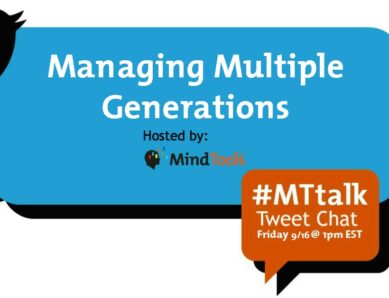Ronald enters the boardroom and calls out the fast food orders that he came to deliver: “One double cheeseburger with fries, one cheese sauce and bacon pasta, one chicken salad with no-fat dressing, and two donuts. I also have one Coke, one Pepsi, a mineral water, and a tall vanilla cappuccino.”
Laura, who is a 44-year-old divorced mother of two, leads the project team who ordered lunch. Its members are about as different as the food they ordered. Kenneth is 54, clean cut, and sometimes comes across as forceful. Brittany is single, 22, and changes her hairstyle and color at least once a month. They work together on planning the test phases of the project, and regularly consult with Robert. He is a 65-year-old with lots of experience and a calm approach.
Robert has had to learn how to use Whatsapp, because there’s a “Project DoThis” Whatsapp group and they need his input from time to time. Kenneth is able to use many different communication platforms but prefers phoning people. When he communicates with Laura, it’s often more practical to send her an email. Brittany is glued to her smartphone and usually responds to any message within minutes, unless it’s after office hours.
Laura sometimes finds it difficult to communicate effectively with everybody. Robert prefers a low-key, structured approach. Kenneth still uses “old school” business language, and Laura isn’t always sure how to interpret his tone. When Brittany is hurried, she sends emails in teenage jargon and unreadable abbreviations. She often talks and types text messages at the same time.
Even though the team members come from different generations, Laura feels that they work well together. Every day they’re learning to accommodate one another in new ways. They also realize that each team member adds specific value to the project because of their different perspectives.
The scenario above describes the reality of many workplaces around the world, where three or four generations work together. Managing multiple generations can be challenging. What’s fair to one generation isn’t necessarily fair to another. Some prefer e-learning, while others want to be in a lecture room. How do you know what to do?
One of our regular Twitter chat participants, @BrainBlenderTec, shared this tweet with us: “We have an 18-yr-old mentoring an 83-yr-old on a #tech #startup. Age is just a way of thinking.”
During our #MTtalk Twitter chat on Friday (September 16), we had participants from three generations:
- Baby Boomers (1946-1964).
- Generation X (1965-1982).
- Millennials (1983-1999).
We discussed “Managing Multiple Generations,” and it was clear that this is not an issue that any workplace can afford to ignore.
Let’s have a look at the questions we asked and some answers from participants:
Questions about “Managing Multiple Generations”
Question 1: Why is the mixing and managing of multiple generations such a hot topic?
@AngelicaJonae: Different generations have various ways of handling work issues, collaborating and critical thinking.
@tweetgayusri: The needs of a diversified workforce differ largely from one generation to another and it has an effect on reaching organizational goals.
@GThakore: It’s a 360-degree era. Managing and mixing generations is real challenge.
Question 2: What’s difficult about mixing generations in the workplace?
One of our participants shared a practical example with us:
@amypen64: In our case: 62-year-old exec admin who can’t work with the 40-year-old vice-president of HR. Refuses to work with or help younger ones.
@AdrianWakeling: Avoiding making too many generalizations about age groups.
An interesting contribution from Ghana:
@Naasei: In my industry (digital marketing) once the mystery is stripped away from technology, all generations find their role and contribute.
Question 3: What types of negative behavior do people in multiple generational workplaces need to watch out for?
@MicheleDD_MT: Stereotyping is a big one – making sweeping generalizations about an age group.
@SistadaHealer: Using age differences to belittle others. “That’s the Old way VS New way.” ALL can learn from each other.
This week we featured a question from our CEO, James Manktelow (Twitter handle @jnmanktelow):
Question 4: When have you seen generational differences cause conflict at work and how could it have been avoided?
Sometimes we generalize based on age group and then make the wrong assumption:
@NootsCaboots: No major conflicts although people assume that I know about technology just because I’m one of the younger ones in the office!
@TheGenPeople: Millennial starts a new job and walks into CEO’s office to share ideas on how to better run the company.
@Lovemyproxy: It could have been avoided if people thought of the team and not themselves.
Question 5: What does “fairness” mean in the context of managing multiple generations?
@Lmalopes: Justice for all, recognition, equity, team leadership, open-mindedness.
@Singh_Vandana: Respecting each other’s opinion. United by similarities rather than being divided by differences .
Question 6: What opportunities are offered by mixing generations in the workplace?
@Ganesh_Sabari: Ability to strike strategic balance between raging enthusiasm/novel ideas and measured conservatism.
@PramodDrSolanki: Have seen work teams formed of diverse people so that they can authentically experience each other and not believe the stereotypes.
With multiple generations come new ways of doing old things.
Question 7: What can you do to accommodate all generations in your on-boarding process?
@Midgie_MT: Ensure your questions/presentations are not biased towards one generation.
@ZalkaB: Create opportunities for cross-generational work and sharing of experience officially and off-work.
The different generations don’t all learn the same, so we wanted to know:
Question 8: How can you engage multiple generations in workplace learning?
@CaptRajeshwar: Let the young guns talk of new things. Let seniors talk of old systems that are still operational.
@Dwyka_Consult: Balance traditional training with new training models and platforms such as gamification and social media.
This gem of an insight from @MikeBarzacchini is a great reminder for us all:
Be the teacher you’d like to learn from and the student you’d like to teach.
Question 9: What skills do a multi-generational team’s manager need to be effective?
@TheGenPeople: Take off your OWN #GenLens to see through others’ without getting frustrated or annoyed.
@MikeBarzacchini: Listening. Fully, deeply, completely. Always lead with listening.
Question 10: How can managers gain cross-generational skills?
@hopegovind: Leave your comfort zone and work with each team, spend time with them even if you don’t like to think from their perspective.
@SAPTAonline: By sharing your stories, being vulnerable by showing you make mistakes and by being open to learn.
Our Twitter poll this week is about managing mindfully. Please cast your vote here:
Twitter Poll: What do you think of when you hear the phrase “mindful manager?”
Next time, on #MTtalk…
From questions nine and 10, we learned that it might benefit a multi-generational team to have a mindful manager. This is someone who listens well, shows real concern toward co-workers, and isn’t quick to judge. In an age where we desperately want employees to be more engaged, we’re learning that the quality of attention and awareness of a leader may have a direct impact on those who he or she manages.
On September 30, we’re talking about “Here, Now – The Mindful Manager.” As always, it will take place at 1 p.m. EST (6 p.m. BST). We’d love you to join us on Twitter to share some of your thoughts and ideas.
To participate in the chat, type #MTtalk in the Twitter search function. Then, click on “All Tweets” and you’ll be able to follow the live chat feed. To join the conversation, simply include #MTtalk in your tweet and it will show up in the chat feed.
Resources
In the meantime, if you’d like to learn more about managing multiple generations, here are some resources:
- Managing Generation Y’ers
- How to Thrive in a Multi-Generational Workplace
- Managing an Aging Team
- Engaging New Recruits
- Leadership by the New Generation
- Managing Mutual Acceptance in Your Team
- Reverse Mentoring





Comments
Rebel says
8 years agoIt's easy to stereotype people from different generations. While we may say that "the young people of today are lazy", I'm quite convinced the generation older than us said it about us too! Yet, today we regard ourselves as hardworking etc. etc. Perspective changes over time. There's much more value in making use of the strengths of each generation.
Midgie Thompson says
8 years agoHi Rebel, Great to see you again! You make a very good point about how our perspectives change over time! Indeed so true, good advice about taking advantage and use the strengths of each generation!
Stephen Boadi says
8 years agoIt was great to be part of the conversation.
Midgie Thompson says
8 years agoGreat to have you there and hear your thoughts. Hope you can make the #MTtalk a regular thing in your schedule, every second Friday at 13h00 EST. We always love hearing everyone's views from all over the world. Different perspectives, different ideas and great learning!
Capt Rajeshwar Singh says
8 years ago"You are best boxer till you meet Mhommed Ali , you are best swimmer till you meet mark spitz , you are best runner till you meet Usain Bolt." Let us be humble and try to learn from everyone rather close our data down load port. The wi fi exist in all Generation but you should be humble enough to ask for password. The world survived from millions of years with all generation conflicts but not shared on such a vast platform. As senior generation team it is our duty to out reach to down echelon to take the organisation forward and have open wi fi port with immediate senior leaders.
The young generation is trying to hide themselves behind the glass bubble and finger first syndrome on touch screen. The society has pushed them to limit and loneliness. It is now that we have to act and share these talk more with push to connect more and more young generation people to bring them in human network signal range.
with best regards,
Capt Rajeshwar Singh
Midgie Thompson says
8 years agoThanks Rajeshwar for sharing your thoughts. You raise a good point about being humble. We can all learn from each other, regardless of the generation of the student or the teacher.
Govind says
8 years agoExcellent read, this is a good read for people looking for good read on managing people from multiple generation
Bill Tucker says
8 years agoHello Govind, I couldn't agree more that managing generation gaps is difficult. I am from a generation where a career meant gradually moving up through the ranks in a single organisation. Today, the focus is much more on transferable skills and lateral moves between organisations. These require completely different strategies in the individual, and need to be managed differently.